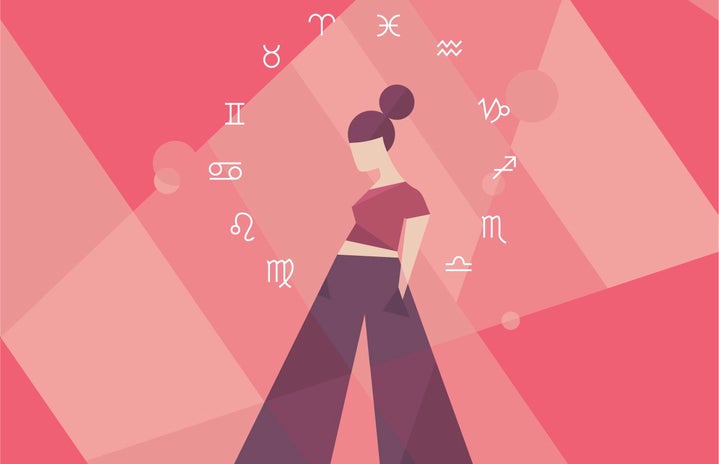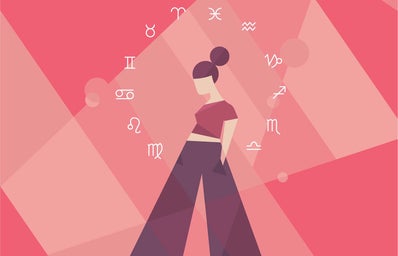The sighs and rolling of eyes that follow almost instantly after the mention of astrology. Does the scene sound familiar?
Whenever I find myself expressing my interest in subjects like astrology or typically feminine hobbies, I am often met with disdain. Commonly shunned and passed off as frivolous, when expressing a liking for typically feminine hobbies such as astrology, crystals and even listening to Taylor Swift, such interests are often met with criticism as they are viewed as a waste of time. But have you ever noticed how the condescension towards these seemingly “basic” (though perfectly harmless) feminine hobbies, may be possibly laced with an undertone of misogyny?
The hate: reasons why it is unnecessary
Feminine hobbies are often ridiculed as being basic or invalid just because many women out there find common pleasure and enjoyment in the same activities, like using makeup, journaling and even the simple act of getting a drink from Starbucks. Labelled as a “basic bitch” with no originality or personality, society likes to label popular feminine hobbies as “basic”, used to degrade individuals as slaves to trends.
Somehow, there is a stigma surrounding female-dominated activities and hobbies where the more “feminine” the hobby is deemed to be, the less “legitimate” it is. Taking makeup for example, though it is actually a highly technical craft, it is often scorned off and seen as nothing but empty vanity. Almost as though these feminine hobbies are just a superficial waste of time.
This skepticism towards female dominated activities has made it harder for women and girls to indulge in specific hobbies or even express interest in them, for the fear of being ridiculed for partaking in “pointless activities”. With such negative stigma surrounding hobbies popularized by women and girls, it limits our freedom to explore areas of interest, as if the fear of being feminine is holding us back from pursuing enjoyment. While it may not be for everyone, these “pointless” hobbies can actually be beneficial. A good case in point is the undiscussed benefits of astrology. Though it may not be for everyone, many delve into astrology as it helps us better understand the different aspects of our own identity. Though not scientifically proven to be true, astrology serves as a source of comfort, something people can resonate with and gain a sense of organisation and control over our lives.
Society carries this perception that hobbies that are typically masculine; such as gaming, going to the gym and fishing, are the only ones that require actual skills and abilities, and therefore more legitimate and respectable. But isn’t the point of having a hobby to be for your own leisure and pleasure, an activity or topic you derive happiness from. So why are we viewing it as a competition of validity?
The male flight phenomenon
The apprehension towards femininity in hobbies can be also seen in the way we perceive “gendered professions”.
Similar to the white flight phenomenon heavily prevalent in the 1950s and 60s: the gradual migration of white people from areas that were becoming increasingly racially and ethnoculturally diverse, the male flight phenomenon depicts men abandoning areas of life that have increased participation from women. This phenomenon illustrates how previously male-dominated sports like cheerleading and fashion wear like high heels, which used to be dominated by men, quickly lost popularity amongst men as soon as women started to get involved. Suddenly these activities were then strictly seen as feminine/for women-only. Instead of gaining respect for the women that join such activities, we lose respect for the sport or activity itself.
Likewise, a study of veterinary school applications found that for every 1 percent increase in the proportion of women in the student body, 1.7 fewer men applied. This brings me to the point that often at times the hate towards these seemingly feminine interests are not stemmed from the activity itself but from the refusal to accept the presence of femininity in it. Almost as though femininity makes anything less respectable, and that in continuing to take part in increasingly women dominated activities men are then seen as less “manly”. As a result, men that take enjoyment from feminine hobbies may feel the need to conceal and avoid partaking, for the fear of being labelled incorrectly as gay or sissy.
Taking a turn for the worse
The stigma surrounding gendered hobbies not only hinders our freedom to pursue our true interests but also results in gatekeeping of certain hobbies. In effect, it is a self-fulfilling prophecy; the avoidance in partaking in feminine hobbies, in turn fuels the negative stigma surrounding them.
I think a key takeaway we all should keep in mind is: only an insecure person would be quick to tear down others’ beliefs and shoot down positive experiences. If our hobby isn’t hurting anyone and is instead enriching our own lives, why are we invalidating them? Don’t be too quick to judge or dismiss each other’s interest! If it isn’t being imposed on you, where is the harm in letting others enjoy what they find comfort in?


